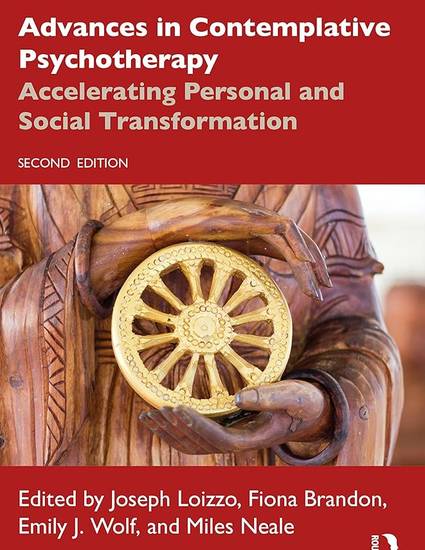
Contribution to Book
Contemplative Practices for Assessing and Eliminating Racism in Psychotherapy: Towards Dynamic Inclusive Excellence
Advances in Contemplative Psychotherapy: Accelerating Personal and Social Transformation
(2023)
Abstract
Fundamentally, and certainly when done well, psychotherapy is a contemplative practice. The dualism with which we often talk about psychotherapy and contemplative practice is illusory. If we define psychotherapy as an interactive process wherein learned, skilled healers engage dialogically with individuals seeking guidance towards emotional and behavioral wellness, then we must acknowledge that psychotherapeutic practices have existed globally for millennia in varied cultural and spiritual contexts. Centering the Western model when we talk about psychotherapy is part of how the legacy of colonialism limits our understanding of psychological pain and how humans heal from it.
This chapter discusses how racism, white supremacy, and other residuals of Western European colonialism create a reservoir of unexamined unconscious material for people of all ethnicities. The mental health professions and practices are often contaminated by the issue of that reservoir and require regular irrigation so that healers themselves do not become conduits for continued racial trauma. In my work assisting clinicians with examining their unconscious material related to racism, I have found that contemplative engagement with the work of decolonial psychoanalysts such as Frantz Fanon and contemporary decolonial clinicians such as Drs Michael Yellow Bird, Beverly Daniel Tatum, Lillian Comas-Díaz, and Jennifer Eberhardt helps guide practitioners towards excising racism from their understanding of and actions within the realm of psychotherapy.
Guided reflective engagement with anti-racist content creates space for people to manage the feelings that come up when exploring racism in their personal and professional lives and lineages. The meditative practices I use in these sessions help create inner spaciousness for the therapists as well as a relational container between us that allows for the transmutation of their anxiety, grief, shame, and anger around racism so that those feelings can become fodder for personal and professional growth. Decolonial psychoanalyst Frantz Fanon describes how, whether we are aware of it or not, we have absorbed racialized messages about inferiority and superiority: “The Negro enslaved by his inferiority; the white man enslaved by his superiority alike behave in accordance with a neurotic orientation” (Fanon, 1952/1967, p. 60).
Fanon also discusses internalized racism as it sometimes manifests as identification with the oppressor. This explains how it is possible for Black, Latinx, Indigenous, and Asian people to hold racist beliefs. Hence it is important for people of every ethnicity to engage in reflective processes to examine their unconscious racism.
Disciplines
Publication Date
2023
Editor
Joseph Loizzo, Fiona Brandon, Emily J. Wolf, Miles Neale
Publisher
Routledge
ISBN
9781032153063
Citation Information
Kamilah Majied. "Contemplative Practices for Assessing and Eliminating Racism in Psychotherapy: Towards Dynamic Inclusive Excellence" Advances in Contemplative Psychotherapy: Accelerating Personal and Social Transformation (2023) Available at: http://works.bepress.com/kamilah-majied/19/
